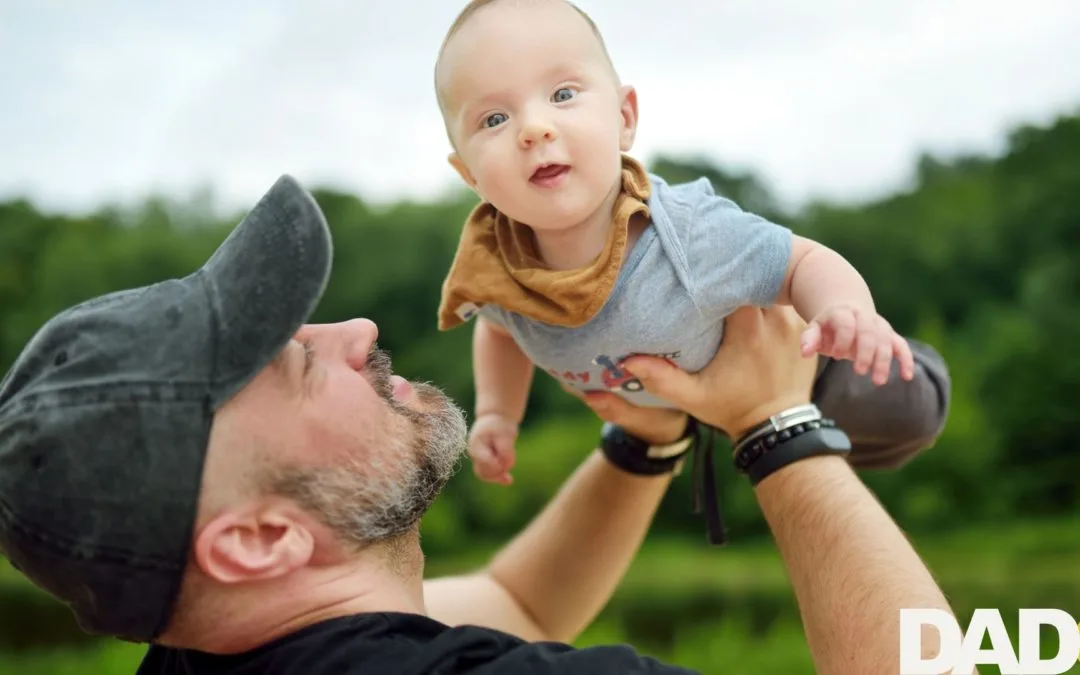One of the most common and heart-breaking topics I’m asked about is dealing with stepfamily situations where the biological fathers doesn’t want to see their children, writes parenting expert Sue Atkins.

I was recently working with a devastated 9-year-old whose father would go months without seeing her as he had a new girlfriend. When her Mum asked him why he didn’t return their daughter’s phone calls or texts he replied: “I don’t have anything interesting to say to her”.
The challenge in these circumstances is to remain neutral, calm and non-judgemental in front of your step child.
Privately you may be seething on their behalf but your stepchild needs you to be there for them instead, being reliable, dependable, engaged, interested and loving.
Talk to your step child acknowledging their disappointment. Help them through the feelings of not being valued enough by their biological father. Explain if their father has a drug, alcohol or mental health issue bearing in mind your child’s age and maturity. Be empathetic.
Steps for helping your step child cope with their disappointment
1. Let it out
One of the hardest things to do in a busy, frenetic world where everything is immediate and where we are all under external pressure, to move on quickly, is to allow your step child to sit with their disappointment. Don’t try to ‘rescue’ or fix it for your step child by immediately skating over their disappointment and making it better – allow them to experience their feelings and sit alongside them whilst you acknowledge their anger or pain.
Human beings are not very good at allowing the experiencing of emotions in full without trying to speed up the process. So, allow your step child to let their feelings out in a good cry or scream until they have got it out of their system and they are genuinely ready to move on and accept that their biological parent doesn’t want to see them.
2. Nurture your stepchild’s self esteem
Fill your step child’s bucket of self-esteem up so high that they are more resilient to the challenges of not seeing their biological father. Help them to value who they are, what they are good at, and why they are loved by your family for just being themselves warts and all. Teach them about unconditional love as it will help give them a wider perspective. Help your step child to notice that they are now part of family that loves them as it will help them put their disappointment and hurt into perspective.
3. Practice acceptance
This is a lifelong challenge as having a parent who rejects a child is so fundamental to their sense of who they are. Children may withdraw, become angry, aggressive and blame others as they struggle to accept what’s happened. Over time help your step child practice acceptance and that may help them suffer a little less.
4. Tell the truth
Though your natural inclination is to protect your step child from whatever will hurt them, it’s not a good idea to lie to them or withhold too much information about their father and why he is not involved in their lives. Deliver the facts in a sensitive way, being careful not to overshare too much adult information.
Guard against telling a lie to protect your step child’s feelings whatever you do, don’t say that their daddy is dead. Children will resent you and your partner when they get older and the truth comes out, and it usually does. Instead of pretending that their dad doesn’t exist, explain to them that being a parent is not an easy job and that some parents are just not ready for it. As a child gets older, if their parent is still not around you could give them a little more detail as to what happened or why he was not there. Your step child may not like what you have to say, but they will probably appreciate it more that you told the truth. It will build trust between you.
5. Don’t bad mouth, criticise or judge your stepchild’s father
It’s also important to be positive when you are delivering the truth to your step children, as they are looking to you for reassurances that they are going to be OK without their real dad, and that it’s not their fault that they don’t have one. Be supportive and don’t speak badly about their dad.
Reassure your step child that just because their biological Dad isn’t ready to be in their lives doesn’t mean that he is a bad person. The important thing, is to help your step child feel that they have what they need in you, which is all that matters.
6. Explain that there are all kinds of families
Some children get very sensitive about the fact that their biological dad doesn’t live with them because they feel all the other children at school have two biological parents living at home. That’s why it is especially important for you to point out that there are all kinds of families, from those with divorced parents to single-parent homes with adopted children.
Read books, watched films, and talk about different families from around the world. ‘Talk & Teach’ your child that some children live with their grandparents, some with foster parents, some with aunts and uncles. Some kids live with one mum or dad, or two mums or two dads. Don’t think or speak about it as a ‘missing’ father. That implies the father ought to be there and your step child is missing out on something.
7. Remind your step child that you love them
It’s also very important for you to remind your step children that though their father might not be involved in their daily lives, they are loved unconditionally by you all.
8. Expect questions
As a step dad you also need to be patient, as your step child’s questions will never entirely go away and they struggle to cope with the feelings of abandonment that result from a father who is absent and uninvolved.
9. Take the long term view
Your step child will eventually figure out what kind of man their father is on their own and may, or may not, forge a relationship with him when their older. Your job is to manage their expectations and be there for them no matter what.
Article written by Sue Atkins
Sue Atkins is an internationally recognised Parenting Expert, Broadcaster, Speaker and Author of the Amazon best-selling books “Parenting Made Easy – How to Raise Happy Children” & “Raising Happy Children for Dummies” one in the famous black and yellow series as well as author of the highly-acclaimed Parenting Made Easy CDs, Apps and resources.
She regularly appears on the award-winning flagship ITV show “This Morning” and The Jeremy Vine Show on BBC Radio 2 and is the parenting expert for many BBC Radio Stations around the UK as well as the parenting expert on SKY News. She has a regular monthly parenting phone- in on BBC Radio Hereford & Worcester and her parenting articles are published all over the world.









